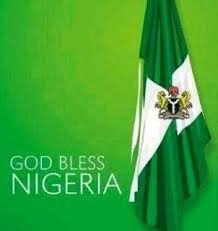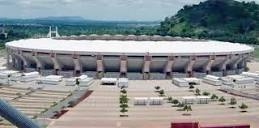profile/4192IMG-20200717-WA0000.jpg
Kingsaro4

Nigeria Independence Day: Some Things You Were Not Thought About Independence Day At School.
~3.4 mins read
You can click on the follow button above to get daily news from us.
October 1, 1960 is not just a public holiday, here are some of the things you should know about Nigeria's Independence Day.
The only memorable thing most pupils in primary and secondary schools know about the Nigerian Independence is that October 1 of every year is a public holiday.
The only memorable thing most pupils in primary and secondary schools know about the Nigerian Independence is that October 1 of every year is a public holiday.
Here are some things you've probably not been thought about Independence Day at school:

1 October
Independence day is a holiday, celebrating the anniversary of a country's independence from another country that ruled it in the past.
Therefore, Nigeria Independence Day is an official national holiday in Nigeria, celebrated on the first of October. It marks Nigeria's proclamation of independence from British rule on 1 October 1960. So for this reason, Nigeria celebrates its independence on 1st of October.
History of Nigeria Independence day
In 1914, the Southern Nigeria Protectorate was combined with the Northern Nigeria Protectorate to create the Colony and Protectorate of Nigeria , which has the borders of modern-day Nigeria. By 1950s, they call for independence of territories in Africa and the decline of the British Empire led to the country being granted independence on 1 October 1960 as the Federation of Nigeria
Nigeria gained independence from the United Kingdom on 1 October 1960. And an Executive Council, made up entirely of Nigerians, was led by a Prime Minister, Alhaji Sir Abubakar Tafawa Balewa. Its first government was a coalition of conservative parties, and it came into power on the back of increasingly enthusiastic demands for political independence from colonial powers that swept across much of the African continent during the middle of the 20th Century.
Nigeria’s independence government was led by the Northern People’s Congress in alliance with the National Council of Nigerian Citizens (a largely Igbo party), with Sir Abubakar Tafawa Balewa as Prime Minister. In 1963, the country became a republic and Dr Nnamdi Azikiwe its first (non-executive) President.
The important of 1st October in Nigeria
The importance of Independence Day in Nigeria comes with the fact that it brings all the Nigerians together in one accord.
1:. The Golden Voice of Tafawa Balewa
Balewa, who was a trained teacher grew up to fame from being a school teacher to a respected politician. He represented the northern interests in the colonial government and held different positions. He eventually became the first and only Prime Minister of the country in 1960.
Aside from being a respected statesman, Tafawa Balewa was also famous for his eloquence. His oratory skill earned him accolades among international communities. And that was the main reason he was nicknamed the Golden Voice of Africa.
On his 48th birthday which coincided with the independence of Nigeria in 1960, Tafawa Balewa, as the PM of the country declared Nigeria's independence and also delivered a hope-filled speech that set Nigerians alight with joys and celebrations.
2. The last British Governor-General
Sir James Wilson Robertson was a British civil servant who served as the last colonial Governor-General of Nigeria.
The reign of the British colonial masters in Nigeria came to an end with the administration of Sir James Wilson Robertson in 1960.
Robertson was said to have been sent to Nigeria to serve as the head of the British colony because of because of his good work in England. He was Governor-General of Nigeria from 15 June 1955 to 16 November 1960.
3: Race Course, Lagos
Race Course is a 14.5-hectare ceremonial ground in Lagos Island. It was the foremost venue for government events when Lagos was the capital of Nigeria.
This place might look empty and deserted today, but the ground played a significant role in the independent Nigeria history because it was the birthplace of Nigeria Independence, a place where Alhaji Sir Abubakar Tafa declared the country as a sovereign nation. But after His death theFederal Government of Nigeria renamed the ground to Tafawa Balewa Square.
Thanks for reading.
Please drop a like for my article and share to others.
profile/4192IMG-20200717-WA0000.jpg
Kingsaro4

Biggest Stadium In Nigeria That Meets The Requirements Of International Safety
~2.6 mins read
Good day all sport lovers around.
Without much ego, let head down to our headline.
I know many of us might not know that Nigeria has a big expensive stadium that could host FIFA world cup
National Stadium, Abuja is a multipurpose national sports stadium located in Abuja the FederalCapital Territory of Nigeria. The stadium serves as a home ground to the Nigerian national football team, as well as a center for various social, cultural, and religious events.
The Federal Government of Nigeria approved the contract for the construction of the National Stadium complex with 60,491 football Capacity on 18 July 2000 and the Construction cost $360 million (€277.00m). Moshood Abiola National Stadium is one of the 50 most expensive stadiums ever built in the world.
On 12 June 2019, President Muhammadu Buhari announced the change of the name of the National Stadium, Abuja to Moshood Abiola National Stadium. President Buhari made this pronouncement during his speech at the Democracy Day celebration on Wednesday at the Eagle Square.
Moshood Abiola National Stadium meets the requirements of the International safety standards; it is equipped with emergency service units, closed circuit security cameras as well as crowd control steel fencing. There are also stand-by fire fighting equipment and metal detectors which have been put in place to avoid any misfortunes.
1: In 2008, the Moshood Abiola National Stadium hosted a football match between Manchester United Football Club and Portsmouth Football Club in front of 30,000 fans. Both clubs are from the United Kingdom. Manchester United is among the most popular sports teams in the world.
2: In 2009, the Moshood Abiola National Stadium hosted the first-ever FIFA U-17 World Cup final in Nigeria, with 60,000 people in attendance. The football match was won by the Swiss Confederation after defeating Nigeria.
Thanks for reading, please drop your view on this....
Advertisement

Link socials
Matches
Loading...
